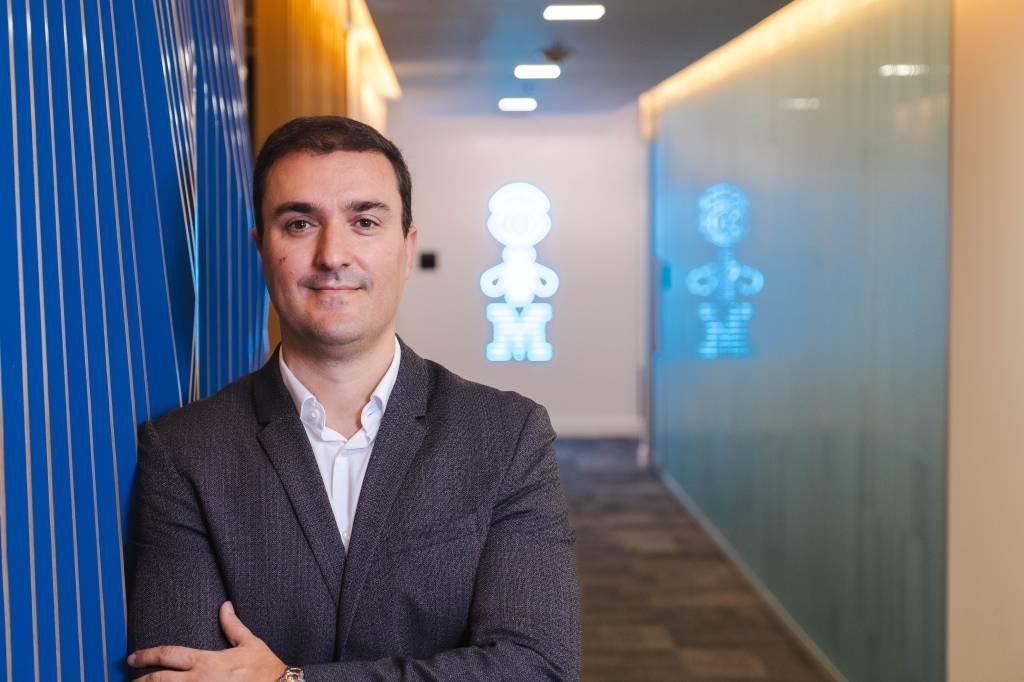It hasn’t been long since then American technology giant IBM He changed almost everything in his operations in Brazil. To defend its leadership in the cloud and Artificial Intelligence segments, the company’s most dominant area, the company launched its executive staff a little over three months ago. Marcelo Braga to the position of president of IBM Brazil.
Braga, who has been in the company for 24 years, knows the business vision of the company well and has intense contact with the market, is a passion for the data world. Above all, his defense is that the potential for digital transformation is still in its infancy, despite accelerating during the pandemic.
In the next step, companies with well-structured, organized and adapted IT teams equipped with technologies operated in cloud services will reap the benefits of artificial intelligence, according to the executive. This factor will fully expand the capacity of these companies.
So, of course, Braga underlines that the global move to invest in the cutting edge of professionalization in technology must respond to the bulk of future productivity gains – something essential in times of supply crises and instabilities in global geopolitics.
Read key excerpts from the interview below.
What challenges did you face on the horizon at IBM after you started your job?
We are going through a crucial moment of market repositioning. We are committed to being a technological foundation for the world’s largest companies on the one hand, and digital transformation involving the transition of many businesses to the cloud on the other. Both are directions we need to go. Above all, with the goal of keeping IBM as a catalyst for companies and people to succeed. Today, we have a leaner and more agile operation operating in the hardware and software segments, as well as in custom migration services consulting, with the challenge of scaling artificial intelligence (AI) usage.
What would you highlight as specific challenges for the Brazilian market?
In my current position at IBM, I have the ability to reach more people in a positive way. Knowing that we are experiencing a talent blindness for the technology sector and the demand for professionals is happening all over the world at the same time, IBMThe global plan to train 30 million people with the new skills needed for the jobs of the future by 2030. We have ‘IBM SkillsBuild’, a project we did together with Santa Maria town hall in Rio Grande do Sul, Brazil, where we train students and teachers from the public school system for free on technology related topics like cloud computing, artificial intelligence and programming. HER It is a very important business when we look at a market where there are not at least 460,000 IT professionals today. Such problems will not be solved if we do not get together with society, other companies and governments.
In the last two years, many companies have transformed their businesses by applying more technology to their operations.but with the ‘end of the pandemic’, is digital transformation still the master password?
Depending on the sector and segment, things are accelerating rapidly. But not all industries are like this. Retail, for example, has already passed some important milestones. Banks too. Even the government has made changes in this regard. But core industries are still far behind in this cycle. I would say that moving towards digitization is still important, I added that for those who are already on this path, you will need to solve the problems that arise when you gain a higher level of digital maturity. These include: gaining scale, controlling the supply chain, and strengthening data security, a topic that goes around almost every conversation about digitization. So the orientation is to organize in this new age.
And how has IBM managed to bring its technologies, which are often focused on large companies, closer to companies and industries that are just at the beginning of these digitalization cycles?
The era when large corporations were centers of innovation is, in a way, over. IBM, for example, has been the world patent leader for 28 years, but in a multi-pronged move, we acquired Red Hat three years ago, which has no proprietary patents but is a powerhouse in free software. That being said, it is to give an example of how we believe in creating an expanded innovation ecosystem. And that goes through the accelerators and business incubators we participate in, and even consultations with communities and customers. With these fronts and touchpoints, we strengthen an ecosystem that takes innovation beyond the big.
The innovation boom in Brazil resulted from the creation of software through the service sector rather than the hardware industry. Should this hold? Do you see any problems with this?
The evolution of human interaction with applications is moving towards the dematerialization of interaction with technology. Today it is entirely possible for a bank to use a voice assistant to perform a service without the need for any physical interface. So this is no longer an economic specialization dilemma. We also have further decentralization of the infrastructure on which these services run. For example, with 5GDge calculation, qrepositioning the infrastructure to be close to demand when necessary, creating a brand new experience, and a process that does not require the consumer to have powerful hardware.
Source: Exame












